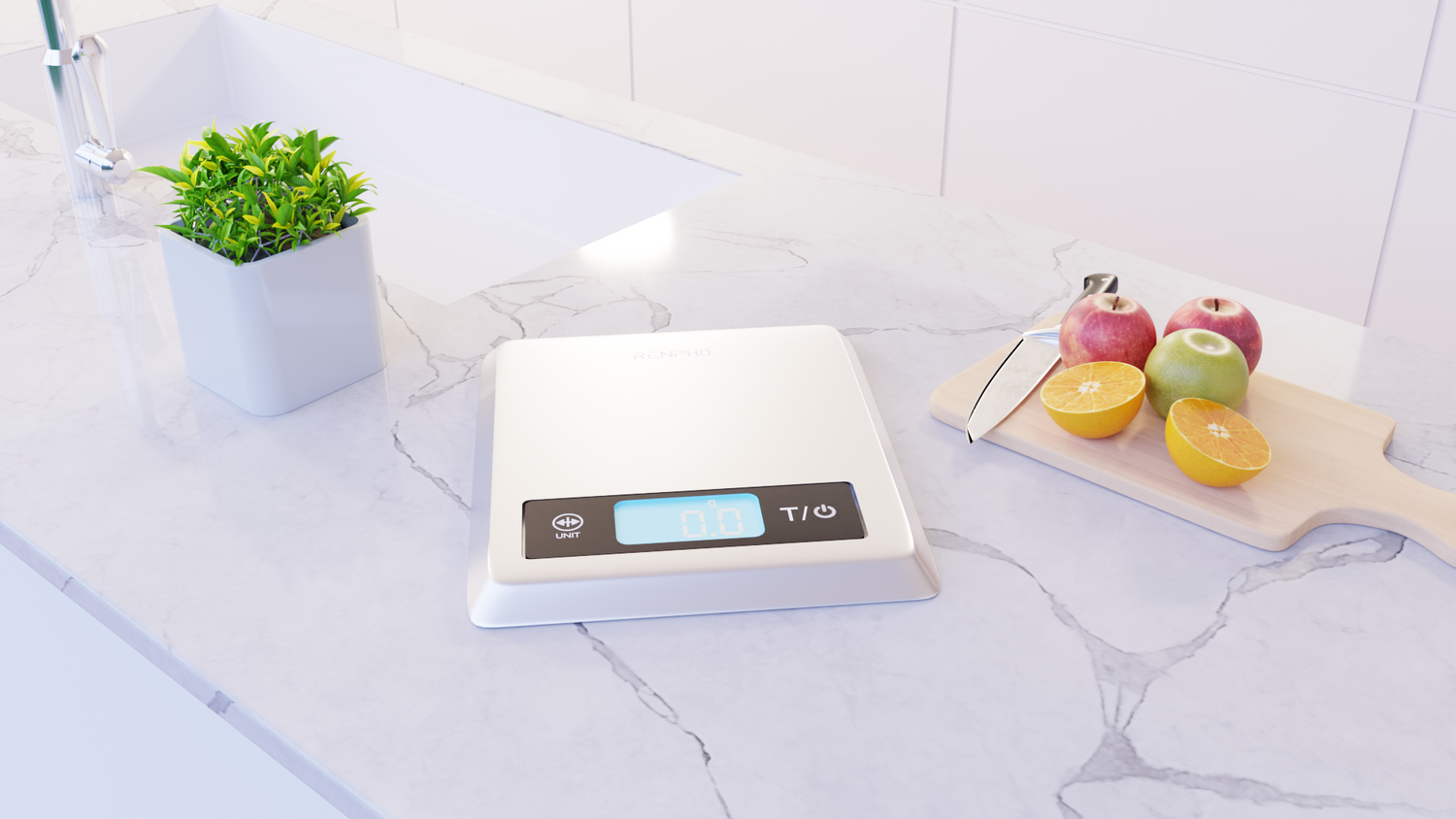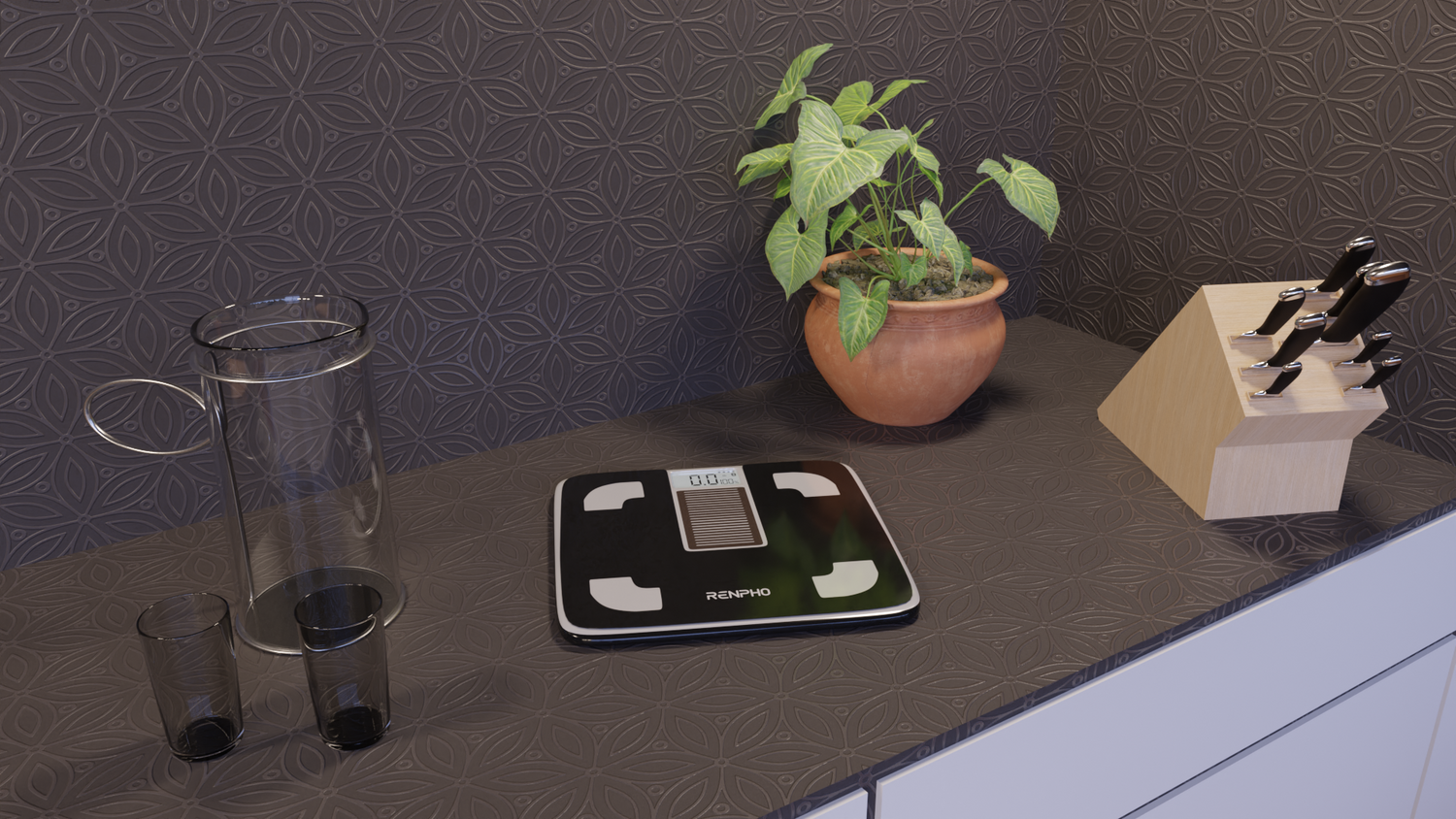Article Revision Made Last June 24, 2025
In a time where many of us are becoming more health-conscious or pursuing wellness, many of us have become increasingly mindful of what we eat. Whether for weight loss, fitness goals, or simply maintaining a healthy lifestyle, keeping track of our calorie intake has become a common practice. However, when it comes to accurate measurement, can food scales truly be relied upon? Are they trustworthy tools, or are they just gadgets making promises they can’t keep?
Let’s embark on a quest to uncover the truth behind the claim: Can food scales really measure calories? By examining the evidence and considering various perspectives, we hope to provide you with a clearer understanding of the role that food scales play in accurately tracking your calorie intake. So, let's dive in and separate fact from fiction in this intriguing debate.
What Are Calories?

A calorie is defined as the amount of heat energy needed to raise the temperature of 1 gram of water by 1°C. In terms of measuring the energy our bodies receive from food and the energy needed for physical tasks, calories play a crucial role. When we consume food, the number of calories it contains provides our bodies with the energy needed to function. This energy is used for various bodily functions, such as breathing, circulating blood, and repairing cells. Also, energy derived from them is used for physical tasks such as exercise, walking, and other activities.
Understanding the important facts about calories, including their role in providing and expending energy, is crucial for managing a healthy diet and maintaining a balanced lifestyle. In short, calories are a measure of energy that our bodies obtain from food and use for physical tasks, and their role in our overall health and well-being cannot be overstated.
How Does Your Body Use Calories?

Calories are essential for providing the energy our body needs to function. The process of digestion starts in the mouth, where macronutrients like carbohydrates, proteins, and fats are broken down into smaller molecules as they travel through the digestive system. Carbohydrates are broken down into glucose, proteins into amino acids, and fats into fatty acids and glycerol. These smaller molecules are then absorbed into the bloodstream and transported to cells throughout the body.
The body uses calories for three main processes: basal metabolic rate, physical activity, and digestion. Basal metabolic rate (BMR) refers to the energy the body needs to carry out basic physiological functions at rest, such as breathing, circulating blood, and maintaining body temperature. Physical activity, including exercise and daily movements, also requires calories to be expended. Lastly, the process of digestion itself uses energy to break down food and absorb nutrients. The energy produced from metabolizing these nutrients is used by the body for various functions, including cellular processes, muscle contraction, and overall maintenance of bodily functions. Overall, calories play a crucial role in sustaining life and enabling our bodies to carry out essential functions.
Why Do Calories Matter?

Calories play a crucial role in supporting life and health, serving as the energy source for all bodily functions, such as breathing, digestion, and physical activity. When we consume more calories than we need, the excess is stored as fat, leading to weight gain. Conversely, creating a calorie deficit, where we consume fewer calories than we burn, is essential for weight loss.
Some may argue that what you eat is more important than how much you eat for weight loss. However, evidence suggests that the quantity of calories consumed ultimately determines weight loss.
Overall, calories are essential for providing the energy needed for bodily functions, and creating a calorie deficit is necessary for weight loss.
How Many Calories Does Your Body Need?

The number of calories a person should consume is determined by various factors, including weight, gender, age, height, and activity levels.
Macronutrients - carbohydrates, proteins, and fats - provide the body with calories. Carbohydrates and proteins provide 4 calories per gram, while fats provide 9 calories per gram. These macronutrients are essential for providing energy to the body and for tissue building. Carbohydrates are the body's primary source of energy, while proteins are important for tissue repair and building muscle. Fats also play a role in providing energy and supporting cell growth.
A balanced diet that includes the right proportion of macronutrients is essential for meeting the body's energy needs and for supporting overall health and well-being. It's also important to consider individual factors when determining calorie intake, to ensure that the body is receiving the right amount of energy for its specific needs.
What Are Food Scales?

Food scales are essential tools for accurate measurement of ingredients for cooking and baking. When choosing a scale, there are several key features to consider. Look for a scale that offers measurements in both ounces and grams to accommodate different recipes and preferences. A tare weight function is important for accurately measuring ingredients by allowing you to zero out the weight of the container or bowl. A large surface area is helpful for weighing larger items or multiple ingredients at once. Finally, affordability is important for those on a budget.
Can Food Scales Track Calories?

Food scales, while essential tools for portion control and precise measurements, cannot directly track or measure the calorie content of a food item. A particular food's calorie content is determined by its macronutrient composition (carbohydrates, proteins, and fats), and any additional ingredients or additives.
Food scales are primarily used to measure the weight of food, allowing you to accurately portion out your meals and track your food intake. By weighing your ingredients, you can calculate the total weight of a dish and estimate the number of calories based on the nutritional information provided on food packaging or in databases.
However, it's important to note that the accuracy of calorie estimation using food scales depends on several factors. Firstly, the accuracy of the nutritional information provided on the packaging or in databases can vary and may not always reflect the exact composition of the specific food item you are measuring. Additionally, cooking methods, variations in ingredient quality, and individual differences in food preparation can also impact the accuracy of calorie estimation.
For a more accurate estimate of the calorie content of your meals, it's advisable to consult reliable sources of nutritional information, such as government databases or professional nutritionists. These sources can provide more detailed and specific information about the macronutrient content of various foods.
How to Weigh and Track Your Food?
Weighing and tracking your food is an important step in understanding your macronutrient intake. To accurately measure the amount of each macronutrient you are eating, use a digital kitchen scale to weigh your food in grams or ounces. This will give you a precise measurement of the portion size. To track your food, use a food-tracking app such as MyFitnessPal. Simply input the food item and the amount you weighed, and the app will calculate the macronutrient content for you.
When weighing cooked food that you didn't personally cook, it can be challenging to get an accurate measurement. In this case, you can estimate the portion size based on similar foods you have prepared yourself. For restaurant meals, many food tracking apps have a database of popular restaurant chains and their menu items. You can search for the restaurant and select the specific dish you ordered to get an accurate macronutrient breakdown.
Ensure consistency in your measurements and maintain regular food tracking to get a clear understanding of your macronutrient consumption.
Should I Weigh My Food Before or After Cooking?
Whether to weigh food before or after cooking depends on your specific goals and where you are in your journey. If you are focused on precise portion control, weighing your food before cooking can ensure accuracy in tracking your intake. On the other hand, if you prioritize flexibility and convenience, weighing your food after cooking may work better for you. It's important to consider your individual needs and preferences when deciding on the best approach.
When weighing cooked food that you didn't prepare yourself, it's essential to ensure accurate entries in your food tracking app. Cross-reference with the US Food & Drug Administration Database (USDA) if needed to get the most accurate nutritional information. This can help you track your intake more effectively and make informed decisions about your diet.
Overall, the decision to weigh food before or after cooking should align with your specific goals and preferences. Whether you prioritize precision, flexibility, or individuality, it's important to find a method that works best for you on your journey to better health.
Takeaway
While food scales are valuable tools for portion control and accurate measurements, they cannot directly track or measure the calorie content of a food item. Calorie content is determined by the macronutrient composition and other factors. Food scales play a vital role in helping you estimate calorie intake by weighing ingredients and calculating the total weight of a dish. However, the accuracy of calorie estimation using food scales depends on various factors such as the accuracy of nutritional information, cooking methods, ingredient quality, and individual differences in food preparation.
To obtain a more precise estimate of calorie content, it's recommended to consult reliable sources of nutritional information, such as government databases or professional nutritionists. Tracking your food intake using a food-tracking app and consistently weighing your food can provide valuable insights into your macronutrient consumption. Whether you choose to weigh your food before or after cooking depends on your goals and preferences, but it's important to prioritize accuracy and consistency in your tracking efforts.
Sources:
RENPHO Health Tips
-

Smoothie Sensations: How to Make Delicious and Energizing Drinks for Your Day
January 21, 2024
Read more >
-

Energize Your Day: 10 Superfood Recipes for Wellness That You'll Love
January 16, 2024
Read more >
-

Beginner's Guide on How to Use Digital Scales for Food
January 16, 2024
Read more >
-

5 Reasons Why Your Digital Scale Is Inaccurate
January 12, 2024
Read more >
-

Can Smart Scales Help You Determine if You're Dehydrated?
January 11, 2024
Read more >



































